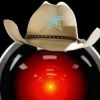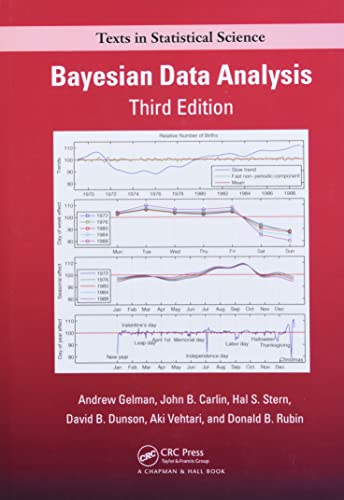7 Mathematical Statistics Books That Separate Experts from Amateurs
Recommended by Computer Cowboy, Kirk Borne, and Nassim Nicholas Taleb, these books sharpen your understanding of Mathematical Statistics.



What if I told you that a handful of books could unlock the complex world of Mathematical Statistics, transforming your understanding from theory to practical mastery? Mathematical Statistics sits at the heart of data science, machine learning, and quantitative research, making it indispensable for anyone tackling real-world data challenges today.
Leading voices like Computer Cowboy, an open source contributor and economist, praise An Introduction to Statistical Learning for bridging theory with R implementations. Kirk Borne, principal data scientist and astrophysicist, highlights All of Statistics as a crucial resource that makes advanced statistical inference accessible. Meanwhile, Nassim Nicholas Taleb, professor of risk engineering, endorses Statistical Models for its rigorous coverage of theory and practical applications in social sciences.
While these expert-curated books provide proven frameworks and deep insights, if you want content tailored to your background, goals, or specific topics in Mathematical Statistics, consider creating a personalized Mathematical Statistics book. This approach builds on expert wisdom and adapts it to your unique learning journey.
by Richard McElreath··You?
by Richard McElreath··You?
Richard McElreath, a Director at the Max Planck Institute for Evolutionary Anthropology, channels his deep expertise in human evolutionary ecology and mathematical theory into this focused Bayesian statistics textbook. You’ll work through calculations that most books hide behind automation, gaining clarity on how to build models step-by-step in R and Stan. The book covers everything from regression basics to advanced multilevel and spatial models, with a strong emphasis on causal inference using directed acyclic graphs. If you’re serious about mastering Bayesian methods and digging into the assumptions behind your models, this will sharpen your understanding and practical skills.
by Andrew Gelman, John B. Carlin, Hal S. Stern, David B. Dunson, Aki Vehtari, Donald B. Rubin··You?
by Andrew Gelman, John B. Carlin, Hal S. Stern, David B. Dunson, Aki Vehtari, Donald B. Rubin··You?
Unlike most mathematical statistics books that focus heavily on theory, Bayesian Data Analysis takes an applied, data-centric approach that makes Bayesian methods approachable and practical. The authors, all respected statisticians, guide you through foundational concepts and progressively introduce advanced techniques, including nonparametric modeling and modern computational methods like Hamiltonian Monte Carlo. You gain hands-on experience with real-world examples and software code that illustrate Bayesian inference in action, equipping you to analyze complex data thoughtfully. This text suits undergraduates starting Bayesian inference, graduate students seeking current methodologies, and researchers applying Bayesian statistics in diverse fields.
by TailoredRead AI·
This tailored book explores Bayesian statistical methods designed to meet your unique background and goals. It examines core Bayesian principles, from foundational probability to advanced hierarchical modeling, emphasizing concepts relevant to your interests. The content covers practical applications and model evaluation techniques, providing a personalized path through Bayesian inference and computation. By focusing on your specific needs, this book reveals how to confidently build and interpret Bayesian models, making complex topics approachable and meaningful. The tailored approach ensures your learning journey bridges expert knowledge with your experience, empowering you to gain deeper insight into Bayesian statistics with clarity and confidence.
Recommended by Computer Cowboy
Open source contributor and economist friend
“This is awesome! Here is the Introduction to Statistical Learning book: And the Deep Learning lab (chapter 10) in Torch in R: The book (and accompanying exercises) is a *great* resource” (from X)
by Gareth James, Daniela Witten, Trevor Hastie, Robert Tibshirani··You?
by Gareth James, Daniela Witten, Trevor Hastie, Robert Tibshirani··You?
Unlike most mathematical statistics books that dive deep into theory, this text by Gareth James and colleagues offers a clear pathway into statistical learning techniques accessible to both statisticians and practitioners from diverse fields. The book covers key methods such as linear regression, classification, support vector machines, and introduces advanced topics like deep learning and survival analysis, all illustrated with real-world examples and R software tutorials. You’ll find practical insights into applying these models to complex data sets from biology, finance, and marketing, helping you grasp both the concepts and their implementation. This edition’s expanded chapters and updated R code make it especially useful for those seeking to bridge theory with applied data science workflows.
Recommended by Christopher Fonnesbeck
Senior Quantitative Analyst, Vanderbilt University Medical Center
“From a technical standpoint, the reviewed chapters are excellent. Too often, statistical textbooks are mathematically sound, but lacking in computational sophistication, or vice versa. These chapters are sound on both fronts. My current primary textbook for Bayesian computation is Bayesian Data Analysis, by Gelman et al. which is probably the standard in academia and industry with respect to applied Bayesian methods. Where Martin et al. differentiate themselves from Gelman et al. (and others) is in the incorporation of Python as the computing language used throughout the book…This manuscript has the potential to be a preferred textbook for those looking for a practical introduction to these methods.” (from Amazon)
by Osvaldo A. Martin, Ravin Kumar, Junpeng Lao··You?
by Osvaldo A. Martin, Ravin Kumar, Junpeng Lao··You?
This book emerges from the combined expertise of Osvaldo A. Martin and his co-authors, who are deeply involved in developing key Python libraries for Bayesian statistics. You’ll find it especially useful if you want to bridge the gap between theoretical Bayesian inference and practical computation using tools like PyMC3 and Tensorflow Probability. The content walks you through everything from foundational concepts to advanced models such as Bayesian additive regression trees and approximate Bayesian computation, with chapters dedicated to real-world case studies and probabilistic programming languages. If you have some background in Python and probability, this book will expand your modeling skills and deepen your understanding of statistical programming nuances.
by Peter D. Hoff··You?
by Peter D. Hoff··You?
When Peter D. Hoff, an Associate Professor at the University of Washington, crafted this book, he brought decades of expertise in Bayesian methods for complex data, aiming to make an often abstract topic accessible. You’ll find a solid introduction to probability, exchangeability, and Bayes’ rule, enriched with practical R-code examples that let you test analyses yourself. The chapters on Monte Carlo and Markov chain Monte Carlo methods go beyond theory, showing you how these computational techniques underpin real data analysis. This book suits statisticians and data scientists eager to deepen their grasp of Bayesian statistics through both theory and hands-on application, rather than those seeking a purely conceptual overview.
by TailoredRead AI·
This tailored book explores the essentials of mathematical statistics with a clear, step-by-step focus designed to match your unique background and goals. It covers foundational concepts, probability theory, inference, and practical problem-solving techniques, presenting them in a way that aligns with your interests and learning pace. By focusing on your specific needs, this personalized guide reveals pathways through complex topics such as hypothesis testing, estimation, and regression analysis, enabling efficient mastery. Through a carefully crafted progression, this book examines how to apply statistical reasoning effectively, integrating examples and exercises that resonate with your objectives. The tailored content ensures a meaningful learning experience that moves beyond generic instruction to address what matters most to you.
Recommended by Kirk Borne
Principal Data Scientist, BoozAllen; PhD Astrophysicist
“One of the best-known books on statistics is now free for download: Larry Wasserman’s "All of Statistics" #StatisticalLiteracy #DataScience #MachineLearning” (from X)
by Larry Wasserman··You?
by Larry Wasserman··You?
Larry Wasserman, a respected professor at Carnegie Mellon University with expertise spanning astrophysics to genetics, crafted this book to bridge the gap between foundational probability and advanced statistical methods. Unlike many texts that confine themselves to classical topics, this work introduces you to modern techniques such as bootstrapping and non-parametric curve estimation, typically reserved for advanced courses. The book assumes you have calculus and some linear algebra knowledge but no prior statistics background, making it a practical choice for graduate students in computer science, mathematics, or statistics. Chapter 7’s exploration of classification methods offers tangible insights for those interested in data mining and machine learning. If you seek a thorough yet concise pathway into statistical inference, this book fits well—though it may be dense for casual learners.
Recommended by Nassim Nicholas Taleb
Professor of Risk Engineering, Author of The Black Swan
by David A. Freedman··You?
by David A. Freedman··You?
David A. Freedman, a respected mathematical statistician with a career spanning teaching, research, and consulting, wrote this book to bridge the gap between statistical theory and practical application. You’ll explore core concepts like association, regression, and causality, alongside tools such as generalized least squares and bootstrap methods, all framed through real studies in social and health sciences. The book’s mix of theory, computer labs, and exercises—with many solutions—makes it especially useful if you want to critically evaluate empirical research or build robust statistical models yourself. While it demands some mathematical background, it rewards readers seeking a grounded understanding of statistical inference and modeling pitfalls.
Get Your Personal Mathematical Statistics Guide ✨
Stop guessing—receive strategies tailored to your background and goals in minutes.
Trusted by data scientists and statisticians worldwide
Conclusion
These 7 books collectively emphasize three clear themes: the power of Bayesian methods to rethink uncertainty, the importance of linking statistical theory to practical computation, and the value of mastering foundational inference techniques across diverse applications.
If you're just starting out, A First Course in Bayesian Statistical Methods offers a solid introduction with hands-on examples. For rapid application, combining Bayesian Data Analysis with Bayesian Modeling and Computation in Python equips you with both theory and computational tools. Those aiming for a broad yet rigorous foundation should explore All of Statistics alongside Statistical Models to deepen their analytical skills.
Alternatively, you can create a personalized Mathematical Statistics book to bridge general principles with your specific needs. These carefully selected books can accelerate your learning journey and sharpen your expertise in Mathematical Statistics.
Frequently Asked Questions
I'm overwhelmed by choice – which book should I start with?
Start with A First Course in Bayesian Statistical Methods if you're new to Bayesian stats, or An Introduction to Statistical Learning for applied methods with R. They lay a solid foundation before tackling advanced texts.
Are these books too advanced for someone new to Mathematical Statistics?
Not necessarily. Some, like Hoff’s A First Course, are designed for beginners, while others build on foundational knowledge. Pairing them thoughtfully helps ease your learning curve.
What's the best order to read these books?
Begin with foundational texts like A First Course or An Introduction to Statistical Learning. Then progress to applied and computational books such as Bayesian Data Analysis and Bayesian Modeling and Computation in Python. Finally, explore All of Statistics and Statistical Models for depth.
Do I really need to read all of these, or can I just pick one?
You can pick based on your goals. For practical Bayesian methods, choose Bayesian Data Analysis. For broad inference, All of Statistics suffices. Each book offers unique value, but combined they cover the field comprehensively.
Which books focus more on theory vs. practical application?
Statistical Models and All of Statistics lean toward theory, while Bayesian Data Analysis and Bayesian Modeling and Computation in Python emphasize practical computation. An Introduction to Statistical Learning balances both with applied examples.
How can I get content tailored to my skill level and interests?
Great question! These expert books provide foundational knowledge, but personalized books can tailor insights to your background and goals. You can create a personalized Mathematical Statistics book that complements these resources perfectly.
📚 Love this book list?
Help fellow book lovers discover great books, share this curated list with others!
Related Articles You May Like
Explore more curated book recommendations






